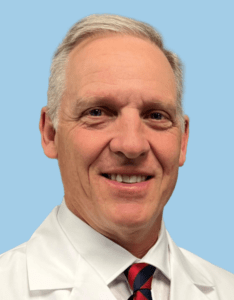
Deep in to the second half of the year, there is no rest for the weary regarding Society for Vascular Surgery (SVS) advocacy initiatives. In July the Centers for Medicare & Medicaid Services (CMS) released its calendar year 2023 proposed rule to revise payment policies under the Medicare Physician Fee Schedule. Thus, we are now poised to fight yet another round of payment cuts that could significantly impact vascular surgery. Having submitted a detailed comment letter to CMS at the start of this month, we are now redoubling our efforts to engage lawmakers on Capitol Hill and ensure policies to mitigate the pending cuts are included in must-pass legislation before the end of the year. With this scenario on the horizon, and an acute need for increased engagement from SVS members, it feels like a good time to provide a refresher regarding our advocacy offerings.
As I hope you are aware, the SVS utilizes a multi-faceted approach for advocacy with an overarching goal of protecting and advancing the interests of vascular surgery. This includes traditional legislative advocacy and lobbying with federal lawmakers on Capitol Hill, activating our SVS colleagues to engage in grassroots campaigns via our “Voter Voice” system and supporting the campaigns of candidate and incumbent lawmakers through the SVS’ political action committee, SVS Political Action Committee (PAC).
By simultaneously engaging in these core tenets of effective advocacy, the SVS has achieved many successes over the last several years, including (but not limited to): mitigating scheduled Medicare physician payment reductions, securing passage of legislation to address physician wellness and garnering significant bipartisan and bicameral support for legislation designed to ease the burdens of prior authorizations. But let’s take a closer look at each of these advocacy tools in action.
Working the legislative process
A significant achievement during the current 117th Congress was passage of the Dr. Lorna Breen Health Care Provider Protection Act (H.R. 1667). This critical legislation authorized grants for programs that offer behavioral health services for front-line healthcare workers. It also requires the Department of Health and Human Services to recommend strategies to facilitate healthcare provider well-being and launch a campaign encouraging health care workers to seek assistance when needed. The bill was signed into law by President Joseph Biden in March 2022.
In addition, the SVS, in collaboration with a broad coalition of physician organizations, has successfully sought legislation over the last two years to significantly reduce scheduled payment cuts within the Medicare physician fee schedule. Led by physician lawmakers Reps. Drs. Larry Bucshon, MD (R-IN), and Ami Bera, MD (D-CA), the physician community continues to make the strong argument that the payment system is broken, and Congress must act to provide greater stability while relevant stakeholders and lawmakers can identify long-term policy reforms.
In addition to sponsoring legislation and delivering letters to both CMS and congressional leadership, Bucshon and Bera have worked to raise awareness among their colleagues regarding this healthcare crisis and are in the process of facilitating a roundtable meeting to discuss this ongoing issue and build upon our work over the last two years to advance the goal of systemic payment reform.
With few healthcare professionals in Congress, the support of Bucshon and Bera is critical, as they are important assets in terms of the cumbersome process of educating lawmakers who are not familiar with the healthcare delivery system and/or the intricacies associated with physician payment. The SVS is engaging in similar efforts this year and we anticipate continued work on these issues through the remainder of the year.
Building momentum with grassroots
Although lawmakers are accustomed to meeting with lobbyists and other organizational representatives, what really matters most to them is you— their constituents. As a result, all SVS members should be looking for, and participating in, every “Voter Voice” grassroots call to action they receive.
This easy-to-use grassroots platform allows SVS members to send pre-written messages to their lawmakers to articulate the SVS’ position on a variety of active legislative or regulatory issues. This sort of “at-home” engagement is often an essential component for securing a lawmaker’s support for a piece of legislation or sign-on letter.
Since mid-2020, SVS members have sent more than 5,000 messages to their federal lawmakers. This is a great measure of engagement, but we still have room to grow and continue to leverage this important advocacy strategy. To help provide a more comprehensive foundation for our grassroots outreach, the SVS has launched a new key contacts program—REACH 535—to identify contacts for each legislative district and ultimately amplify our messages to lawmakers.
To learn more about this critical program, I encourage you to contact our advocacy team at [email protected] or visit vascular.org/REACH535.
Tying it together with SVS PAC
SVS PAC is the collective voice of vascular surgery on Capitol Hill and serves as the political arm of our ongoing advocacy efforts. Via contributions from our members, the SVS PAC supports incumbent lawmakers and candidates who will champion the issues important to vascular surgery and the patients we serve. SVS PAC is non-partisan and issue-driven.
With more than 4,000 federally registered political action committees, SVS PAC is the only one focused on identifying and supporting pro-vascular surgery lawmakers. To help facilitate the development of strong relationships with lawmakers, representatives from the SVS PAC Committee and/or our Advocacy staff, attend fundraising events where SVS’ top legislative priorities are discussed directly with the member of Congress and his or her top staff.
During one such event with Rep. Angie Craig (MN-2nd District), Dr. Patrick Ryan was able to eloquently outline the plight of office-based practices as well as the immense value these practices offer in terms of providing care in an efficient and cost-effective manner.
Following the exchange, Rep. Craig vowed to further investigate the issue and articulated an interest in becoming more involved. This is the type of dialogue SVS PAC helps to facilitate. Members of Congress are busy on many fronts and are often not familiar with these healthcare issues.
It is our opportunity to organize (let them see that we are thoughtful and united), to educate (help them plainly see the consequences of inaction) and to advocate (present them with viable proposals and ask for their support).
Our challenge: Building a unified coalition
Various threads on SVSConnect have pointed out that financial decisions by CMS affect all of us and our ability to plan for our practices and deliver high-quality care to our patients. Recent SVSConnect posts have stressed that we are all in this together. Having these discussions is healthy and resolving differences of opinion in a healthy fashion will help us solidify our message and our ability to support the specialty. However, we must also transform these discussions into action and work collaboratively to ensure that the strength of each of the aforementioned advocacy tools continues to grow.
We must continue to build a coalition of congressional representatives who are willing to bring our issues to light to the Congress. We need to guide these representatives so that appropriate legislation can be drafted and passed such as recent legislative successes. Our engagement as individuals, group practices and academic centers is crucial to this cause!
PAC donations raise money needed to gain audience with members of Congress and build our platform. More importantly the percentage of us donating is a direct and tangible metric demonstrating our level of commitment.
Writing to our local representatives has been stressed by the lawmakers with whom we have met, especially in “vulnerable” districts. Everyone’s congressional representative needs to know that there is a healthcare crisis that is threatening their constituents’ access to vascular care!
Our representatives need to know that it is not fiscally responsible for us to invest in staff, supplies or in any other meaningful ways when we know that there will be budget cuts looming every single year. The representatives are sympathetic to these issues but only when the issues are put before them in a direct and concise manner.
This is not the time for complacency. Just as surely as night follows day, we find ourselves on the brink of additional reimbursement cut proposals that will surface in the coming weeks. Thanks to all who are doing their part but now is the time for all members of the SVS to step up!
Donate to the PAC at vascular.org/PAC.
Kenneth Madsen, MD, is a member of the SVS Political Action Committee Steering Committee












